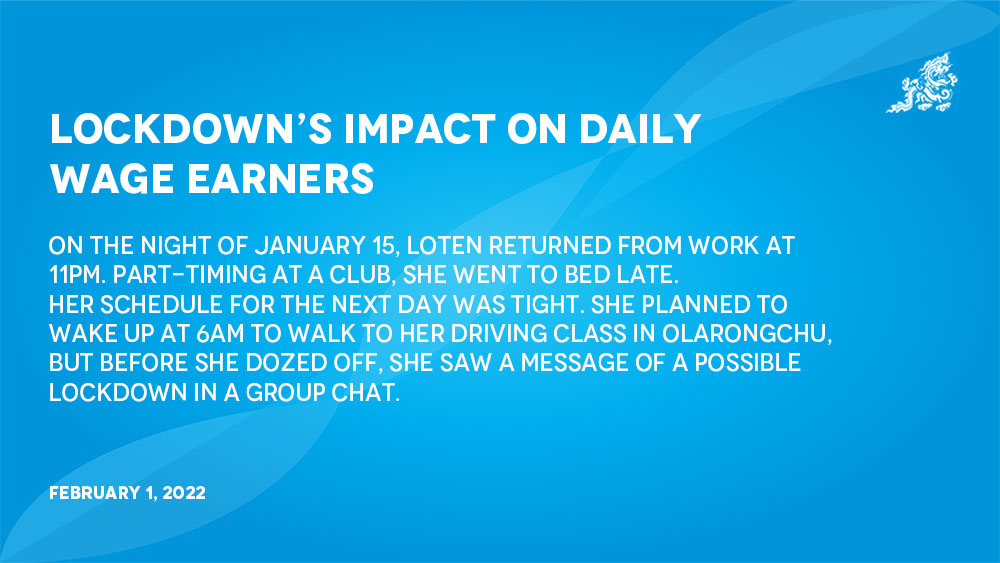Tashi Dema
On the night of January 15, Loten returned from work at 11pm. Part-timing at a club, she went to bed late.
Her schedule for the next day was tight. She planned to wake up at 6am to walk to her driving class in Olarongchu, but before she dozed off, she saw a message of a possible lockdown in a group chat.
“I went blank. I have no money to pay rent. I have no pocket money,” the 23-year-old said. “I remembered the last lockdown, the struggles, and how it took so long to open up.”
The university graduate, who completed her studies last year, is still looking for a stable job. “I did many part-time jobs in a cafe, a fitness club, and house cleaning to survive.” She is now part-timing in Wonder Last Club as a cook.
As the eldest in the family raised by a single, alcoholic mother, she has to not only survive, but also to help her four younger siblings in the village.
“Life has been difficult in Thimphu and the lockdown is making it worse,” she said. “My mother had to borrow money from neighbours and sent it to me last year during the lockdown.”
Staying in a single-roomed makeshift hut in Changzamtok, Loten said she struggled during the first four days. “I had to go without food for a day when the electricity socket was damaged.”
Loten said the club owner was generous. He recharged Nu 699 of mobile data for all workers and gave them an advance of Nu 3,500.
Limiting herself to two meals a day, Loten also feeds the stray dogs nearby. She also shares her meals with an elderly woman staying nearby, whose 65-year-old son was stuck in Paro.
She said it is also difficult to borrow money from friends during such difficult times. “I sought help from a friend, who sent me a photo of a Nu 500 note and asked me if I received it. My friend might have thought I would not be able to repay them.”
Loten is not alone.
Many daily wage earners face the same difficulties.
Devi, 39, is a single mother of two.
Working in an office canteen, she cooked only on weekends at home. “I could not save any money as the little I earned was barely enough to pay the house rent and meet expenses.”
During the lockdown, Devi ran out of rations and did not even have a movement card to go out to buy it. “I sought help from my sister-in-law to register for the card.”
Devi and her children are surviving on the little money she received from those who know about her plight. “If the lockdown extends, it will be difficult.”
A Babesa resident has been asking for money to buy vegetables from his neighbours and schoolmates.
“When he doesn’t have money to buy the rations, he beats his wife. Lack of income can lead to other problems at home,” a neighbour said.
Loten said most of her neighbours, who are also daily wage earners, are impacted severely by the lockdown. “They have families to feed.”
She said that during the last lockdown, she saw toll free numbers to seek help and also saw rations being delivered. “I did not hear of any such services in this lockdown.”
While she is trying to stay engaged, reading and writing on social media, Loten is worried if the lockdown will be extended. “How would daily wage earners like me survive?”
She is planning to return to the village if the lockdown is lifted. “I want to help my grandparents, but without any income there, we will suffer again.”
Those in need of ration support can call 1188 or 1187. Those in Phuentsholing can call 1184 or visit www.royalkidu.bt.


